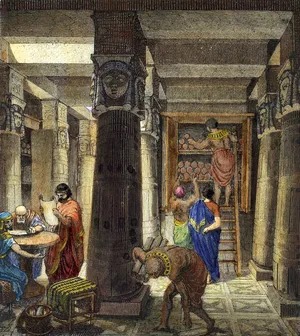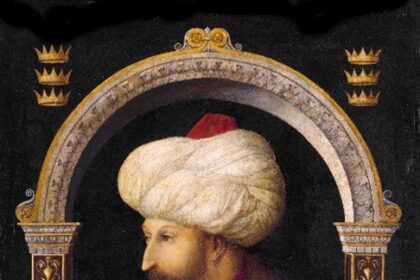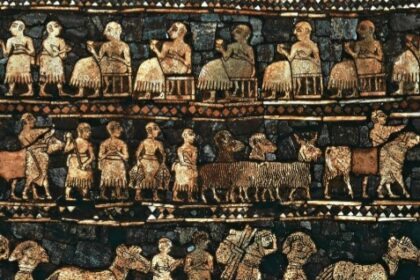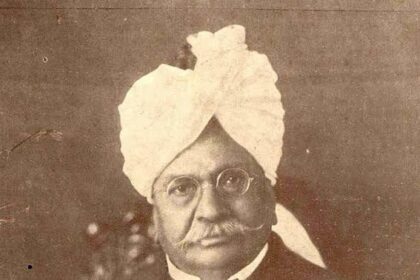The Library of Alexandria is a legend of ancient times, with mystery coupled with tragedy in its account. It has been metaphorically developed and imagined as the greatest intellectual institution during its period. This legendary central part of knowledge was actually the light of learning in the ancient world. Although this destruction is said to have happened at one time, historians argue for more complex ideas about this.
The Vision Behind the Library
Founded in the 3rd century BCE, the Library of Alexandria came into being during the reign of Ptolemy I Soter. Being the general of Alexander the Great, Ptolemy ruled Egypt, and after the death of Alexander, Ptolemy’s son, Ptolemy II, had a larger vision for the library, incorporating it into a wider institution known as the Mouseion, founded especially for the Muses, the goddesses of art and science in Greek mythology.
Under the monarchs of the Ptolemaic dynasty, there was a great ambition to obtain the knowledge of the world by collecting scrolls from Greece, Egypt, India, and well beyond. It is believed that all ships arriving at Alexandria’s grand port were required to give up any books that they carried on their vessels so that paper copies could be made in the library. Scholars from across the ancient world were invited to study there, making it the hub of research, innovation, and debate.
What Was Inside the Library?
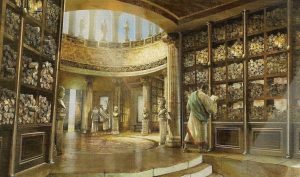
The definitive scroll count for the Library of Alexandria is unknown, but estimates place the number of texts in the library between about forty thousand and four hundred thousand in the heyday of its existence. Works of some of the greatest minds of the ancient world were there, such as:
- Euclid, the father of geometry,
- Archimedes, who laid the foundation for calculus,
- Hippocrates, the founding father of medicine, and
- Eratosthenes, who calculated the Earth’s circumference with astonishing accuracy.
- Aristarchus, who, nearly 1,800 years prior to Copernicus, suggested his heliocentric model of the solar system.
This vast collection included works on every conceivable subject, from mathematics to astronomy, to philosophy, and to literature. The library was more than a storage place; it was a hub of scholarship and translations, rendering texts accessible to scholars of various cultures.
How Did the Library of Alexandria Fall?
The destruction of the Library of Alexandria remains one of history’s greatest mysteries. Contrary to popular belief, it was not destroyed in a single catastrophic event. Instead, its decline occurred over several centuries, with multiple incidents contributing to its eventual disappearance.
- Fire by Julius Caesar (48 BCE)
As he besieged Alexandria in a campaign against Pompey’s party, Julius Caesar reportedly set fire to enemy ships. The flames spread to portions of the city and possibly reached the library or its storage facilities. However, it is improbable that this was the sole reason for its destruction.

- The Roman Period and the Role of Christians
Over time, Alexandria fell into Roman hands, and the city itself changed in religious and political aspects. In the fourth century CE, Christianity rose and fought against paganism within its institutions. Some histories say that zealous Christians, following Theophilus, the Patriarch of Alexandria, ordered the destruction of pagan temples and probably vestiges of the library in the year 391 CE.
- The Muslim Conquest (7th Century CE)
Later sources allege that when the Arab forces of Caliph Omar captured Alexandria in the year 642 CE, they burned all remaining books, saying that if they agreed with the Quran, then these books were unnecessary, and if they contradicted the verses of the Quran, then they were deemed dangerous. However, many historians do not believe this because it is derived from much later texts and lacks contemporary testimony.
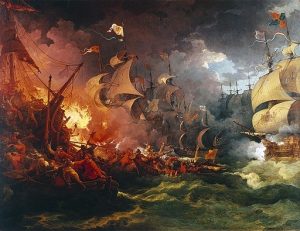
A Legacy That Lives On
Although it suffered a tragic loss, the impact of the Library of Alexandria survives in collective memory today. The desire to gather and keep knowledge was an inspiration for other establishments, notably the libraries of Baghdad in the Islamic Golden Age and the great universities of medieval Europe. The Bibliotheca Alexandrina, a new research center and library established in 2002 in Egypt, embodies the ideals of the ancient library.
The fall of the Library of Alexandria remains a reminder of the fragility of knowledge. A tale about the dangers of war, religious intolerance, and cultural negligence is very much alive. However, it stands as a beacon of human dissatisfaction and an unyielding quest for knowledge, which are two great forces propelling civilization forward.
Would humanity be on a different road if the library had survived? Probably, the answer is lost in time, but the spirit of the scholars of Alexandria is present in every book, every university, and every seeker of knowledge today.




